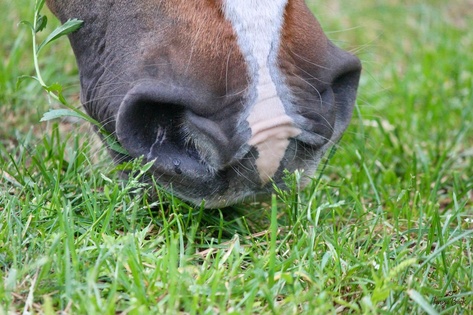
The Most Popular Horse Breeds Of 2019
Equestrian Advice & Guides General Equestrian
Build your business profile for FREE and expose your services to thousands of potential clients!
Create my profile now!
It’s officially Spring; the grass is growing, the birds are tweeting, the bugs are crawling and the horses are shedding. But why does your horse look so course, scruffy and lackluster? Friends tell you to worm him, but how do they know he needs it? Do you just haphazardly administer some chemical and hope it does the trick? Can you do it yourself? And, does your vet need to be in on your decision? Does a fecal analysis work? Should you rotate deworming products?
First, research the parasites and their life cycles to understand what they are, why they are detrimental to your horse and not only how, but when to administer which drug to eradicate them.
Don’t want to? Okay, I’ll break it down into simple facts for you!
Fun facts about parasites:
1.) The number one cause of death in horses is colic, and one of many reasons horses colic is parasite infestation.
2.) Parasites live off the host (the horse) and cause damage to the digestive system, which, in turn makes your horse look terrible, feel puny and act differently.
3.) 20:80 Rule applies; 20% of the herd will carry 80% of the parasite load, so targeting these horses will protect the rest of the herd as well. These 20% may need deworming more often.
4.) Parasites develop resistance to certain drugs, so rotation is recommended and decreasing frequency is recommended.
5.) Most concerning (generally) to all horse owners are small strongyles.
6.) Young horses—those under age 3—are most susceptible to small strongyles and roundworms. These horses may need deworming every three or four months.
7.) With age, horses naturally develop resistance to roundworms.
8.) If you deworm too often, eventually no worming regime will work as resistance builds up and the chemicals are no longer effective.
9.) “Natural” dewormers don’t generally work well, as susceptibility to parasites is directly linked to the immune system efficacy in the horse.
10.) Fecal counts can be helpful, but must be repeated often. (I bought a small microscope that came complete with slides, covers, saline and everything I needed for $140 online and now do them myself.)
11.) Generally speaking, most horses only need to be dewormed twice a year; Spring and Fall, and this is based on when the best time to kill off certain species of parasites is optimal.
12.) Bots develop into the larval stage in the stomach during the Fall and Winter, so deworm for tapeworms and bots in the Fall. Tapeworms are easiest to kill using Ivermectin with Praziquantel, after the first freeze.
13.) Small and large strongyles are easily spread in pasture due to their life cycle.
14.) Test for tapeworm infestation through your veterinarian, who will use an ELISA test. You can also actually see tapeworms in manure piles if horse is heavily burdened.
15.) It takes about 48 hours to expel the parasites from the horse. Do not allow dogs to eat manure after deworming horses, especially if using Ivermectin.
16.) Do not feed immediately after administering paste. Horse will spit out the food along with the dewormer.
17.) If horse is heavily infested, consult with your vet, and then watch for colic immediately after deworming. Especially if the horse is new to you.
18.) Ivermectin and Moxidectin are the best choices to control strongyle parasites.
19.) Ivermectin resistance is common in ascarids.
20.) Ivermectin and Moxidectin are both good choices to control strongyle parasites.
21.) Pyrantel, Fenbendazole and Oxibendazole are good for treating ascarids in young horses.
22.) Heavily impacted horses can be dewormed using either Moxidectin, or a “super pack” of Fenbendazole (10 mg/kg for five consecutive days). Check with your vet.
23.) Is it working? To test your own deworming program’s effectiveness, conduct fecal exams at appropriate intervals. If you do this too soon, the count will not be accurate.
For example:
How to tell if your horse is suffering from parasite overload:
Timing and products to use:
Spring (March, April, May) is the best time to eradicate Tapeworms using Anthelcide, Fenbendazole, Praziquantel, or two doses of Pyrantel.
Fall (September, October, November—following the first frost) is best to get after the red worms, round worms, stomach hair worms, large mouth stomach worms, neck and intestinal threadworms, and bots. Use Ivermectin or Ivermectin with Praziquantel.
If you choose to worm frequently, you will need to rotate worming products in order to limit the resistance build up. Most importantly, remember that more frequent deworming does not make a horse healthier. It does help the parasite build resistance.
***Disclaimer: This article is not meant to take place of your veterinarian or to provide any veterinary advice. Remember doing your own research is better than reading anything on the internet that someone else wrote and speaking to your vet is my first recommendation. This article is my own conclusions after researching parasites and chemical products devised to eradicate said problem. ***
Do your own research, verify with a licensed veterinarian and help your horse to live long and prosper, Happily Ever After!
~Tanya Buck
www.TanyaBuck.com for FREE Stuff, as usual.

